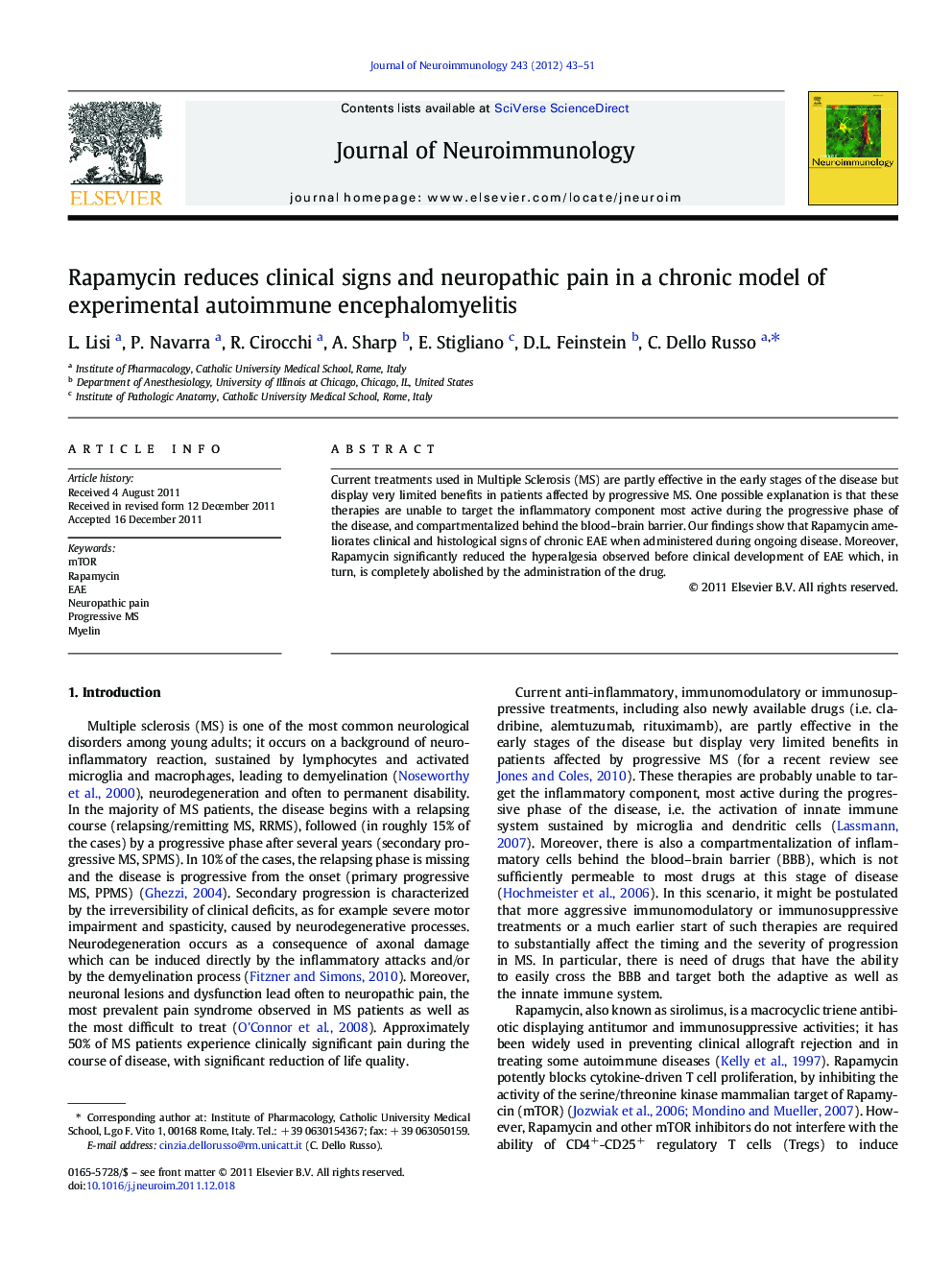| Article ID | Journal | Published Year | Pages | File Type |
|---|---|---|---|---|
| 3064310 | Journal of Neuroimmunology | 2012 | 9 Pages |
Abstract
Current treatments used in Multiple Sclerosis (MS) are partly effective in the early stages of the disease but display very limited benefits in patients affected by progressive MS. One possible explanation is that these therapies are unable to target the inflammatory component most active during the progressive phase of the disease, and compartmentalized behind the blood–brain barrier. Our findings show that Rapamycin ameliorates clinical and histological signs of chronic EAE when administered during ongoing disease. Moreover, Rapamycin significantly reduced the hyperalgesia observed before clinical development of EAE which, in turn, is completely abolished by the administration of the drug.
Related Topics
Life Sciences
Immunology and Microbiology
Immunology
Authors
L. Lisi, P. Navarra, R. Cirocchi, A. Sharp, E. Stigliano, D.L. Feinstein, C. Dello Russo,
